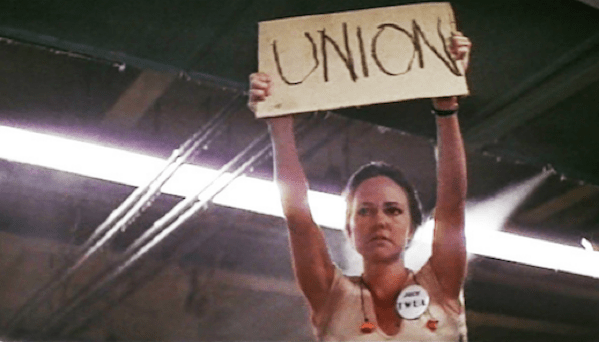Is organized labor coming back?
Merely whispering that could jinx it. But check out these vote counts.
Did you know that there’s more Republican support to pass an ambitious labor rights bill than there is to pass a minimum-wage hike? Congress has been trying to pass an ambitious labor rights bill for more than 70 years. Even during the New Frontier years of the mid-1960s, it didn’t happen. During the same period, Congress voted to increase the minimum wage 26 times, on occasion expanding coverage to groups that were left out previously. During the inflationary 1970s the minimum wage went up practically every year.
Minimum wage hikes got harder to pass starting with President Ronald Reagan, who never approved one, but the hourly minimum wage still went up four times in the 1990s and three times in the aughts before it got stuck in 2009 at $7.25, which a dozen years of inflation have shrunk to the equivalent of $5.95. Barack Obama was president in 2009, but that year’s increase was signed into law by Obama’s predecessor, George W. Bush.
The big corporations that supposedly run America don’t give much of a crap about the minimum wage because they seldom pay it. (That’s why attempts by Senate Democrats to write language into the Covid bill to penalize corporations that don’t pay $15 an hour are kind of beside the point.) What big corporations and big Republican donors care a lot about is killing off what’s left of the labor movement. Yet consider the following vote tallies.
In 2019, when the House last voted on a stand-alone minimum wage bill, it passed, 231-199. Three Republicans voted for the bill while six Democrats voted against it. In 2020, when the House last voted on that ambitious labor rights bill, the victory margin was, granted, slightly narrower: 224-194. But five Republicans voted for it instead of three, while seven Democrats voted against. The main reason the margin was smaller on the labor bill was that there were 12 members not voting on the labor bill, but only three not voting on the minimum-wage bill. (Both bills, of course, died in the Republican Senate.)
I’m not saying Congress is likely to pass the pro-labor PRO Act while the Democrats hold only 50 votes in the Senate. I’m not even saying the PRO Act is an easier sell in the Senate than the Raise the Wage Act. What I am saying is that if last year’s House vote is any guide—and yes, I realize the Democrats lost 13 seats—then there’s a lot more support for the PRO Act than most people suppose, even though the U.S. Chamber of Commerce and whoever will bankroll the Republican nominee in 2024 regard the PRO Act as the death knell for civilization. The reason is that Republican union members are easier to find than Republicans who work a $7.25 an hour job. Something like one-third of all union members vote Republican. Remember Scott Walker, who was going to sweep the 2016 primaries with his anti-union message? That got him nowhere.
I think that the minimum wage hike will pass in some form in the not-too-distant future. It may take eliminating the filibuster, but I think it will happen. The PRO Act will take a bit longer, but I think it, too, could become law in the next few years. Lyndon Johnson couldn’t pass a big labor bill, but it’s not unreasonable to expect that Joe Biden or his successor in the White House can.
The occasion for these thoughts is President Joe Biden’s speech last night siding with workers who are trying to unionize an Amazon plant in Alabama. My latest column for the New Republic points out that this was an extraordinary gesture on Biden’s part—a “big fucking deal,” to borrow Biden’s language in a different context—that may signal labor’s many, many decades of hard luck are about to end.




